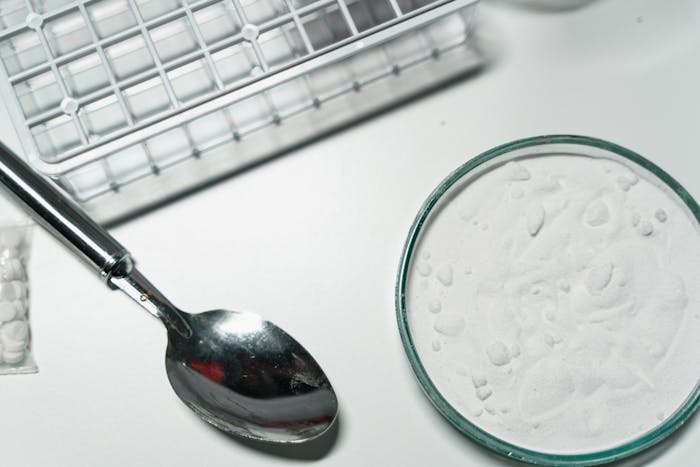“Monkey dust” is a sensationalised drug, with media accounts of it turning users zombie-like.
Whilst these are tabloid headlines, there are still real dangers of using monkey dust and risks of addiction.
As a potent psychoactive, monkey dust has the potential to lead to serious side effects and long-term addiction.
This blog covers what exactly monkey dust is, its effects and the dangers of using it.

Monkey dust, also known as MDPV (Methylenedioxypyrovalerone), is a highly potent synthetic cathinone drug. [1]
It generally comes in powder form, with a white or yellowish appearance, and can be snorted, smoked, injected, or taken orally.
The immediate effects of the drug include making the user feel energetic and extremely alert, similar to the effects of taking other stimulants like cocaine or methamphetamine.
However, serious and dangerous side effects include:
These side effects can last a long period of time, sometimes for up to 12 hours, and can cause significant distress. Users may cause harm to themselves or commit random acts of crime and violence.

Monkey dust first caught headlines in the UK in the mid-2010s, alongside a rise in other synthetic drugs.
Its popularity grew rapidly due to its potent stimulant effects, cheap manufacturing, and easy distribution.
Its use has been strongly linked to certain urban areas, especially Stoke-on-Trent. In one report by the Advisory Council on the Misuse of Drugs (ACMD), of the 75 deaths involving a synthetic cathinone recorded in the UK between 2019 and 2023, 52% happened in Staffordshire (including Stoke-on-Trent). [2]
In response to this threat, the UK government has classified MDPV and other similar synthetic drugs as Class B under the Misuse of Drugs Act. This means there are severe legal penalties for the production, distribution, or possession of monkey dust.

There are many dangers of using monkey dust, including physical and mental health risks and long-term problems.
Monkey dust puts intense strain on the body and can have severe physical consequences. Users may experience a rapid heart rate and high blood pressure, which increases the risk of heart attacks or strokes.
The drug can also cause muscle breakdown or injury during episodes of agitation, and seizures or sudden collapse are possible due to overstimulation of the nervous system.
Additionally, there is a serious risk of overdose, especially since street powders are often mixed with other unknown substances.
The mental health effects of monkey dust are significant and can be long-lasting. The drug can trigger severe paranoia and delusions, which may lead users to act violently or irrationally.
Hallucinations and psychotic episodes can last for hours, sometimes even days, leaving users disoriented and distressed. Extreme anxiety and panic attacks are common, and repeated use increases the likelihood of long-term mental health disorders.
Due to its intense euphoric effects, monkey dust is highly addictive, and dependence can develop rapidly.
Monkey dust use also carries serious social and behavioural consequences. Users may behave unpredictably or aggressively, putting themselves and others at risk.
The drug is associated with a higher likelihood of criminal activity and other risky behaviours. Relationships, employment, and education can also all suffer as a result of erratic behaviour.
Monkey dust is highly addictive. Users may start taking the drug for its energising effects, but tolerance develops quickly, meaning larger or more frequent doses are needed to feel the same high.
Signs of monkey dust addiction include:
Long-term addiction can cause severe physical and mental health problems, including:
If you or someone you know is struggling with monkey dust use, it is important to seek help as soon as possible. Professional support can provide treatment for addiction, manage withdrawal symptoms, and address the physical and mental health risks associated with the drug.
Early intervention can make a real difference, helping users regain control of their lives and reduce the risk of long-term harm.
Call us today at 0800 140 4690 for further information and advice.